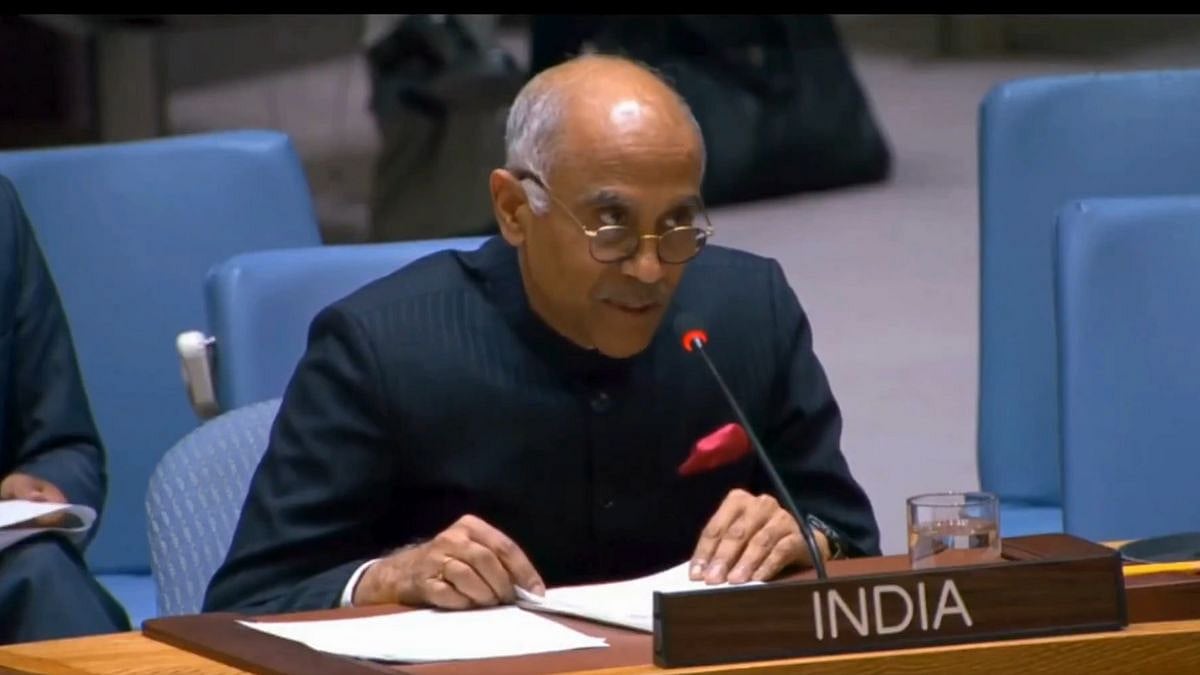The outcome of recent 2023 United Nations Climate Change Conference,COP28, held in Dubai was completely juxtaposition and collocation of a well-thought strategy and farsighted vision as its 11,000-word unanimously agreed document called for transitioning away from fossil fuels in energy systems in equitable and orderly manner in the world which is also being termed as India’s victory as compared to previous summits.
COP28 exhibits India's philosophy of ‘Vasudhaiva Kutumbakam' (the world is a family) and extended unequivocal support to U.A. E’s COP28 presidency which has shown transparency, fairness and free exchange of thought amongst all participating countries.
Victory For India’s Policies
COP28 provided an equal playing field for India and other developing nations whereas COP26 held in Glasgow was a big setback because its declaration called for the ‘phase down of unabated coal power’ which is backbone of our fulfilment of energy needs. It did not mention the use of fossil fuels like oil and gas which are being used by developed nations including the United States.
Contrary to it, “Dubai Consensus” is being dubbed as a landmark event of the history which was signed by 200 nations and became a reality despite some dissenting voices which,no doubt, is a big achievement of much criticized U.A.E Presidency. Experts attribute it to other factors like commitment, flexibility and mandatory requirement of each country to survive in future.
India’s Future Strategy
India has already projected its resolve to become carbon-neutral by 2070 hence it does not have any plan to re-purposing of coal-based power stations before 2030. India has stressed the dire need of the accelerated efforts which are required amongst the countries towards the goal of phase-down of unabated coal power. It leaves room for India to avert an energy crisis because it permits a requirement-based addition of new coal plants which is essential for its fast-growing economy. Due to China and India’s pressure and weightage, the UAE Consensus document dropped references to “limiting the permitting of new and unabated coal power generation” which is in the interest of people of both nations and will prove beneficial in the long run. But it is a fact that India will have to depend upon fossil fuels for longer period as compared to developed nations though more than 100 nations have pleaded for the phasing out of coal-based dependence. Experts suggest that developed nations will have to liberally contribute to the fund meant for the purpose of achieving the goal for fossil fuels otherwise it will remain as a mirage.
The success of the event rightly warranted celebrations which was visible but critics say that it could be short- lived as production of Oil, coal and gas continue to rise hence Fossil fuels companies are focusing and planning for enhanced production for decades. As per data, several countries are still fully reliant on fossil fuels for revenue and economic growth which makes path patchy but a good beginning has been made to tackle the climate crisis.
Environment experts say that India’s strategy and policy is in accordance with the Dubai Declaration which lends credibility and farsightedness to the limitations on permitting new and persistent coal generation in several countries in the world. Prime minister Narender Modi has demonstrated his resolve to make climate action, a collaborative process, which leaves no one behind and takes every nation along to achieve the final goal.
In view of the marathon discussion during COP28 conference, none can deny the fact that India believes in the climate action plan which veers around the theme of displaying collaboration and camaraderie for action- oriented approach towards the healthier and greener future. India has urged every nation to adopt decisions of the Dubai Consensus which have got the theme of Global Stock-take and The Global Goal thereby re-emphasizing PM Modi’s principle based on equity and climate justice. Experts say that India has demonstrated through its G20 presidency to make climate action that its’ resolve is based on the principle of collective action which ensures the participation of every country.
India To Become Carbon-Free By 2070
India has already projected its resolve to become carbon-neutral by 2070 hence it does not have any plan to re-purposing of coal -based power stations before 2030. India has stressed the dire need of the accelerated efforts which are required amongst the countries towards the goal of phase-down of unabated coal power. It leaves room for India to avert an energy crisis because it permits an addition of new coal-based plants which is essential for its fast-growing economy. Due to China and India’s pressure and weightage, the UAE Consensus document dropped references to “limiting the permitting of new and unabated coal power generation” which is in the interest of people of both nations and will prove beneficial in the long run. But it is a fact that India will have to depend upon fossil fuels for a longer period as compared to developed nations though more than 100 nations have pleaded for the phasing out of coal-based dependence. Experts suggest that developed nations will have to liberally contribute to the fund meant for the purpose of achieving the goal for fossil fuels otherwise it will remain as a mirage.
America’s Commitment To COP28
Experts appreciate U.S. Climate Envoy John Kerry’s clarion call to consider the COP28 deal ,as a clear and unambiguous message to the world, needs to move away from fossil fuels which has been agreed upon by even those countries which economically rely on fossil fuels. It is also significant that the fossil fuels issue was on the table for discussion and every nation is striving hard to find a long-term solution which should augur a new era in the field of climate action.
Critics have got their reservations about the COP28 summit agreement which lacks a comprehensive account of all factors in order to achieve carbon emission targets in future. Several scientists have expressed their concern over carbon capture which is still unproven and there is an attempt to distract the attention from policies to cut fossil fuels. The doors have been left open to ensure the continuation of the fossil fuels expansion drive which may have an adverse impact on the final goal of COP28 declaration.
Analysts opine that one of the biggest Takeaways from COP28 pertains to lack of commitment and resolve of developed nations to provide sufficient funds to most climate-venerable nations to enable them to adapt the escalating impacts of the climate crisis besides strengthening their economies to move towards renewable energy and achieve Net Zero goal by 2050.The final draft does not take care of earlier commitment of $100 billion per year by developed nations per year which has not been met so far. As per projected figure, developing nations will require about $6 trillion prior to 2030 and adaptation may warrant $388 billion per annum and clear energy transition will consume $4.29 trillion per year until 2030.It does not mention even the minimum level of funds requirement and it is silent on this issue whereas a commitment has been made for a meagre fund of $470 million which needs to be enhanced.
In this backdrop, climate experts and scientists opine that there is no option with developing nations but to switch over to new targets. It is an opens secret that these nations are dictated by their energy needs and weak financial status hence oil, gas and coal are here to stay though COP28 may show a path to understand the serious fallout leading to a climate catastrophe in future.
(Writer is a political analyst who is having six-year experience of foreign posting in a neighboring country.)









